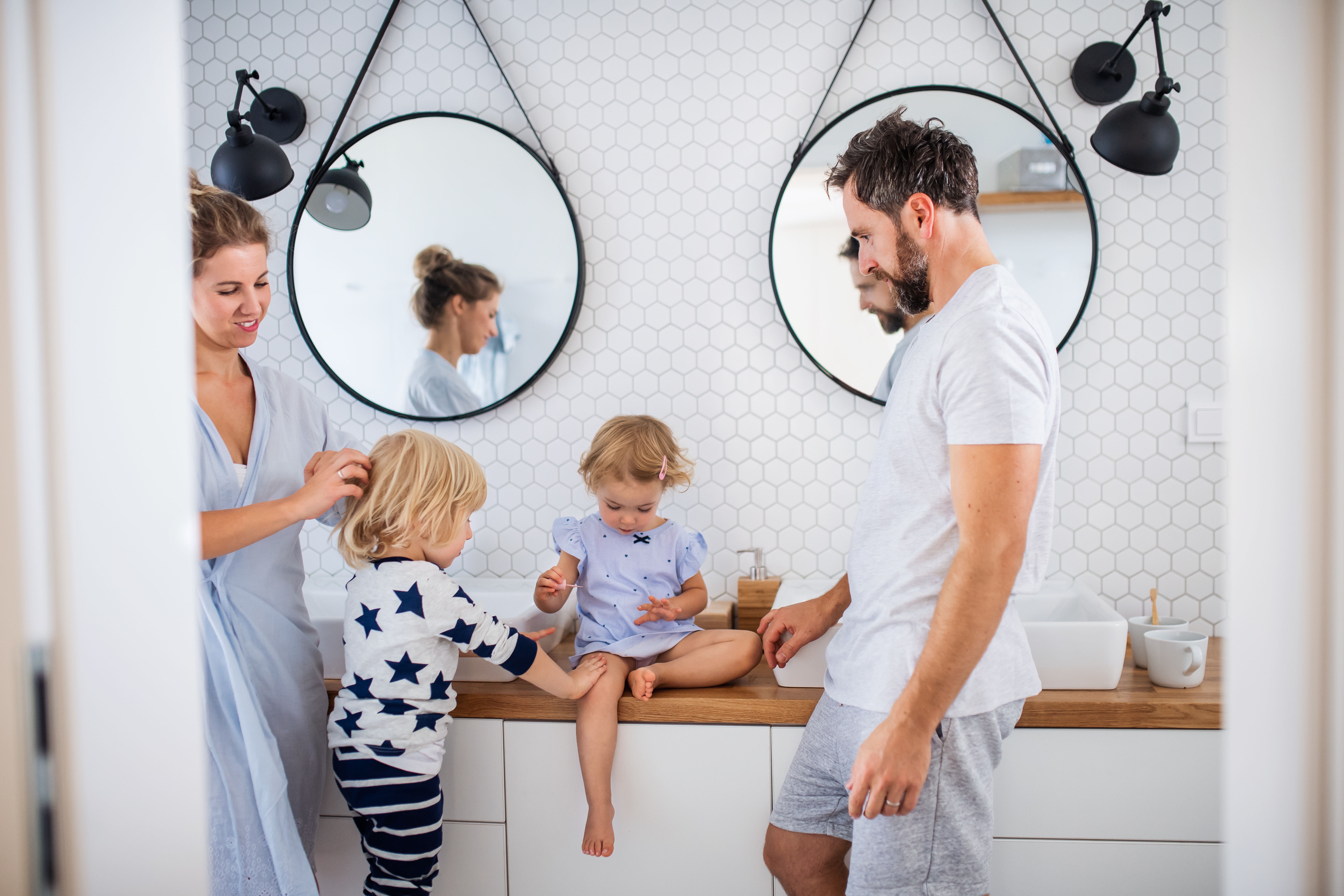The coronavirus pandemic has changed many aspects of our day-to-day life. As restrictions increase, parents may be finding it harder to keep their toddlers entertained at home all day, every day. Establishing a new routine which works around your state’s restrictions can help maintain a feeling of normalcy and stability in your little one’s world.
Bedtime
Whether or not you already enforce bedtime and wake-up times, establish these rules for isolation. Choose a bedtime that suits your schedule and gives you time with your toddler for baths, dinner, and winding down. Try to avoid letting your toddler oversleep, even though the temptation is high with nowhere to go. Having a maximum sleep-in time means your toddler shouldn’t have too much energy come bedtime, and you can predict when they’ll be up and about and ready for attention.
Mealtimes
Try setting mealtimes throughout the day so you and your toddler are on the same page and you can predict when they’ll be hungry. Breakfast, morning tea, lunch, fruit-snack and dinner can be a good chance for you to check in with your little one if you’re busy throughout the day with work or chores.
Screen time
While it’s best to limit screentime and encourage active play, the screen may be the next-best-thing to a babysitter. Limit screen time per day, but allow your toddler to pick their screen moments (not too close to bedtime).
Consider increasing screen time for educational or exercise videos. Popping your little one in front of a toddler-yoga video may just get you an uninterrupted hour of work, while you can still supervise from nearby.
Responsibilities
Toddlers are beginning to understand and build their independence. Try keeping your little one busy by giving them tasks to complete. For example, each morning after breakfast could be ‘tidy-time’ when they could pick up any toys from around the house, and have a go at making their bed. Getting your toddler involved in decision-making processes can be helpful for their confidence, so try asking them to write a shopping list for dinner before you go to the store. Remember to communicate whether they can include any treats this time around!
Socialise
Technology is a great way to make isolation less isolating. If you have any friends or family with young kids as well, organise a daily or weekly video play-date where they can have a chance to see friendly faces and talk to other children.
Scheduling regular times to video-chat with grandparents or other people close to your toddler can give your little one something to look forward to. Keeping in touch is helpful for the mental wellbeing of all family members.
Exercise
Try to include an hour a day for your own exercise. Practising healthy habits is a great way to be a good role model. Get your little one involved in activity by showing them how to stretch and move their body safely, or encourage them to have a run-around or do some star jumps while you exercise near them.
Reflection
Introduce a set-time every day where the family can reflect on how they’re feeling, what they’re grateful for, and what they may be struggling with. Do this over dinner, or as you put your little one to bed. Equipping your child with the language to express themselves will help you get to know them better, and help them build communication skills.
Start a project
Try beginning an age-appropriate project you can work on with your toddler, that they can also chip away at to fill in time during the day. Perhaps at 5:30-5:40 every day, you can help with a dance routine, a puzzle, or colouring in; encourage your toddler to try on their own throughout the day.
Micro-breaks
Create some super quick routines you can do with your toddler. Try a lunchtime backyard footrace, which only takes one minute, but contributes to structure and gets everyone moving.
Walking
Within current restrictions in Melbourne, one hour of exercise is permitted per day. Take this opportunity to get your little one into the sunshine and see the outside world – don’t forget your mask!
Rinse, repeat
In this time of uncertainty, do your best to appreciate the time you can spend at home as a family. Routine can help your little one feel safe and burn up some energy. It also allows you to have a loose idea of what you can work on around your toddler’s schedule, and balance time for yourself and your other responsibilities.
Recommended Articles:
https://www.babybunting.com.au/baby-talk-blog/5-Tips-for-Working-from-Home-with-Your-Toddler/
https://www.babybunting.com.au/baby-talk-blog/introducing-sport-and-exercise-to-your-toddler/



